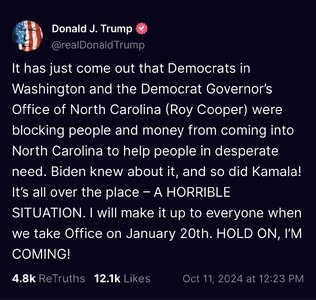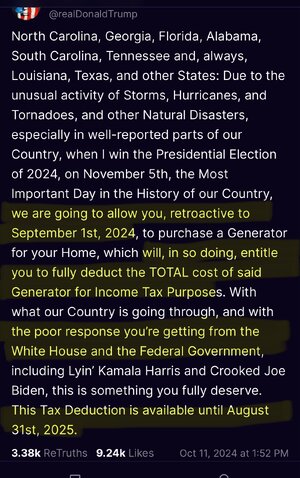I'm curious what model you would think better to replace the "marketplace of ideas" model concerning speech.
My feelings about the marketplace model is roughly the same as the platitude about democracy..."It is the worst form of government except for all of the others."
The biggest problem with the marketplace of ideas is the assumption that the "best product" will win out in the end. That's not even true of actual marketplaces, let alone metaphorical ones. So the cheery optimism of "let people express their ideas and the truth will win in the end" is actually no more than mere enthusiasm, to quote from a Russell Crowe character.
Somehow the rest of the world manages to function without buying into the marketplace of ideas. Here's a statement of European law, which includes some exceptions to free speech that we recognize (nat sec, defamation) but many that we don't.
The exercise of these freedoms, since it carries with it duties and responsibilities, may be subject to such formalities, conditions, restrictions or penalties as are prescribed by law and are necessary in a democratic society, in the interests of national security, territorial integrity or public safety, for the prevention of disorder or crime, for the protection of health or morals, for the protection of the reputation or the rights of others, for preventing the disclosure of information received in confidence, or for maintaining the authority and impartiality of the judiciary.
The key concept there is "duties and responsibilities." The American version of free speech, by contrast, is the juvenile idea that communication is only about freedom, only about "I can say what I want to say 'cause it's a free country." That's the idea specifically and intentionally promoted by the marketplace model, which after all was basically an import of 19th century laissez-faire ideas into the realm of speech.
In real marketplaces, there are all sorts of regulations. For instance, dishonest speech can be prosecuted as fraud if used to gain financial advantage. But used to gain political office? Marketplace. In a marketplace, everyone is making noise but the marketplaces don't let people stand up with bullhorns and drown all the other vendors out. But in political speech? Marketplace.
We could start with a few simple rules. I'll offer two. I haven't thought deeply about this issue in a while and I don't have a lot of time now so the ideas are going to be rough and will not be perfect, but they give a flavor.
1. Saying something that is knowingly false should carry consequences. Knowledge of falseness can be proven by a track record of being corrected.
We wouldn't want to stifle people from questioning the conventional wisdom, so it should be OK to express "controversial" opinions. It should just be mandatory to point out the disagreement. If Trump wants to claim that windmills cause cancer, fine. But he should have to express it as, "I think windmills cause cancer. Most scientists disagree, and I have no evidence of it, but that's my opinion."
2. Same with conspiracy-mongering. If you say "they are doing this," and you can't specify who "they" is, then maybe you shouldn't be saying that shit. That's also a lot of the Trump problem. "They want to take your cars away." "They let so many migrants into the country," etc. Well, who is "they"? If you can't answer with specificity, it shouldn't be said. The "they" doesn't even need to be accurate. It just needs to be there. Otherwise, your statement stands only if true. Same with nonsense like "so many towns in the Midwest are being run over by violent gangs." Which towns, or it's a lie and not protected.
And yes, I appreciate the epistemic issue. Who gets to say what's true or false? Is the government the arbiter of truth? And my answer is that this is only a hard question on the margins. So maybe we need a higher standard to make sure we can at least hit the worst. Maybe the false claim has to be obviously without merit, or there has to be clear and conclusive evidence of its falseness. There are ways to do it. None of them are perfect, but again we face the problem of perfect versus good. Our present system of free speech is highly imperfect. An imperfect set of rules to prevent lies is better than no rules.





